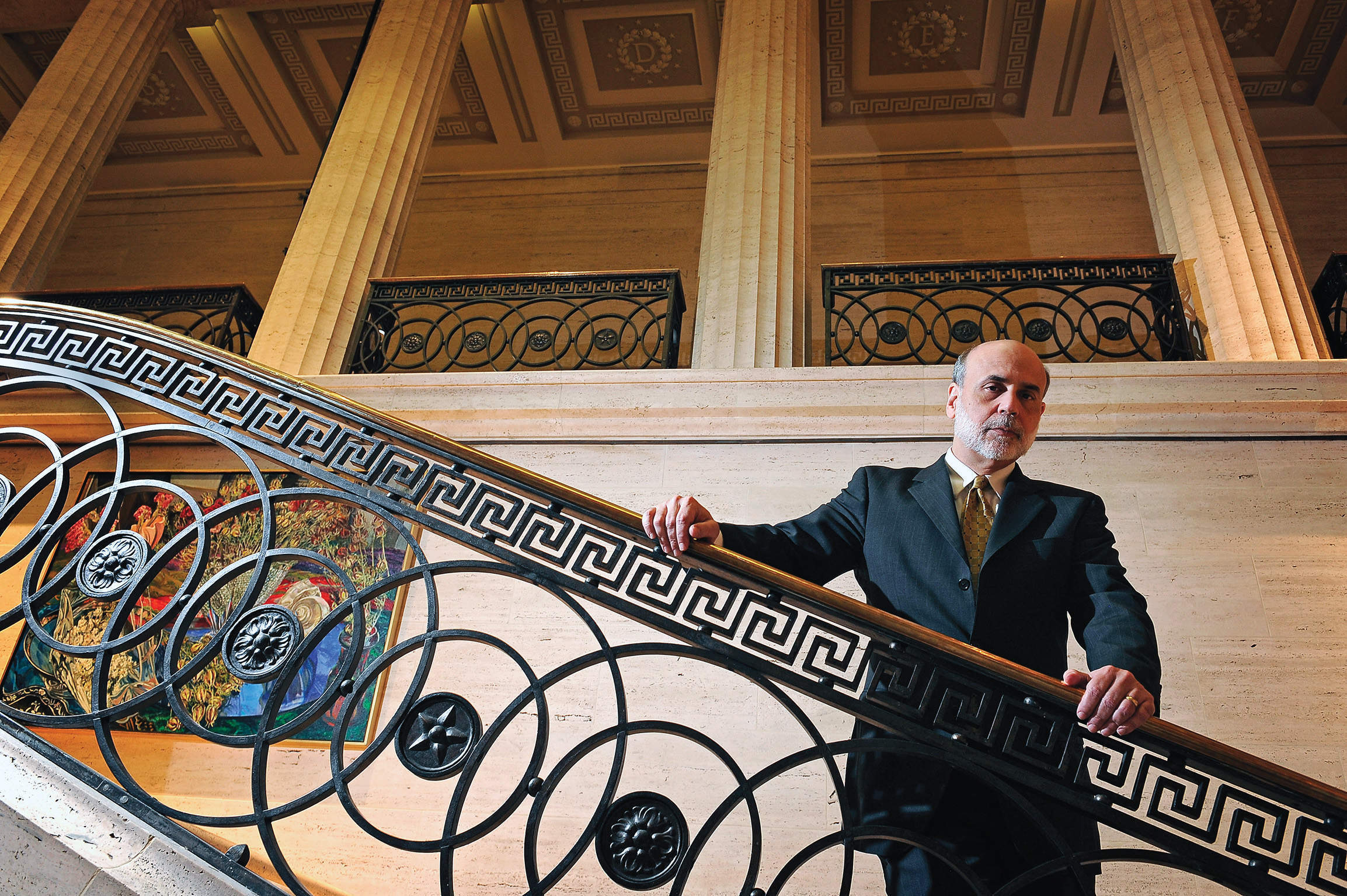
Ben Bernanke is one of the rare people to emerge from the financial crisis with their reputation enhanced. As the chairman of the US Federal Reserve from 2006 until 2014, he helped prevent a recession becoming a depression through policies such as ultra-low interest rates and quantitative easing (QE). Not everyone appreciated his efforts. “If this guy prints more money between now and the election . . . we would treat him pretty ugly down in Texas,” the Republican former governor Rick Perry warned in 2011.
“I love being a civilian again,” Bernanke, 61, tells me when we meet at the Delaunay café in Aldwych, London. The former Princeton economics professor is now a fellow at the Brookings Institution and the author of a newly released memoir of the crisis, The Courage to Act. At a time of increasing economic pessimism, does he fear another crash? “The risk of a crisis like 2007 is relatively low,” says Bernanke, spooning the froth from his cappuccino. “Banks have much more capital, oversight is much tighter.” The most troubling trend, he says, is “the reaction of the other emerging-market economies to China’s slowdown”.
Though a depression was averted in 2008, the recovery in the US and the UK has been anaemic. Bernanke partly blames the imposition of fiscal austerity (spending cuts and tax rises), which limited the effectiveness of monetary stimulus. “All the major industrial countries – US, UK, eurozone – ran too quickly to budget-cutting, given the severity of the recession and the level of unemployment.”
He criticises George Osborne’s new budget surplus law, which prohibits government borrowing when the economy is growing by more than 1 per cent. “I would be very cautious about putting in rules that would prevent a timely fiscal response to a slowing economy, particularly in a world of very low interest rates.” He adds that “a period of excess labour supply and low interest rates is not only a good time to invest, from the perspective of the recovery, it also makes sense from a long-term productivity perspective”.
Bernanke is also sceptical of Jeremy Corbyn’s “people’s QE”, under which the Bank of England would use newly created money to fund infrastructure, rather than buying financial assets. “That’s more or less equivalent to the combination of a fiscal infrastructure programme and the acquisition of bonds by the central bank. The main objection I have is a governance objection: it’s not up to the central bank to make fiscal policy decisions.”
Once a Republican, the softly spoken Bernanke now describes himself as a “moderate independent”, lamenting the “know-nothingism of the far right”. He argues that “ideological polarisation” has “diminished the willingness of either party to work across the aisle to find constructive solutions”. Has he considered entering politics? “Absolutely not, never. I’m much more comfortable in an analytical environment than a political environment.”
Bernanke is troubled by the level of income inequality in the US and the UK. “It’s not something that can be addressed overnight. It requires sustained effort, for example, to improve the skills and training of those who are not benefiting from new technologies and new industries.”
At the close of our conversation, I ask Bernanke what he regards as his greatest achievement at the Fed. “I hope that our strenuous efforts to stabilise the financial system and to help the economy recover will ultimately lead to the kind of growth and prosperity that we need,” he replies. But, he warns: “The final chapters of that story are not yet written.”
This article appears in the 04 Nov 2015 issue of the New Statesman, The end of Europe





